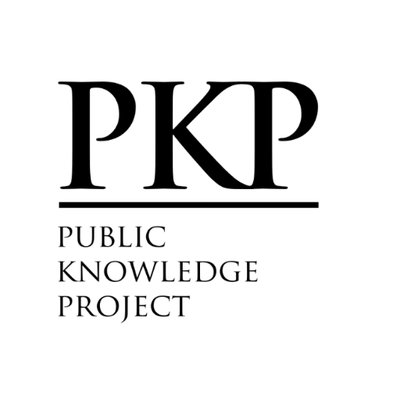Providing Microfinance Services in Sub-Saharan Africa
Success or Failure?
DOI:
https://doi.org/10.59051/joaf.v13i1.526Keywords:
success ; failure ; microfinance ; financial inclusionAbstract
Objective: this article aims to analyze the impact of microfinance services on improving the living standards of the beneficiaries in sub-Saharan Africa.
Methodology: to achieve this objective, a multiple regression on data collected on the Global Findex database over the period from 2011 to 2017 was applied.
Results: at the end of the analyses, we find that microfinance has certainly financially included people excluded from the traditional financial system but has not really improved their living conditions. Microfinance institutions in Sub-Saharan Africa place more emphasis on their profitability to the detriment of improving the living conditions of clients. Moreover, the beneficiaries of microfinance are still struggling to live on the income from their micro-projects.
Originality / relevance: this study has shown that microfinance is moving further and further away from its original objectives, microfinance institutions have become a kind of bank that “banks” the poor.
Downloads
References
Amendola A., Boccia M., Mele G. et Sensini L., (2016), « Financial access and household welfare : evidence from Mauritania ». Policy Research Working Paper, No. WPS 7533. Washington, D.C. : World Bank Group.
Armendáriz, B. et Morduch J. (2005), The Economics of Microfinance. Cambridge: MIT Press.
Balongana Ch. et Mafouta B. (2007), « Microfinance, transfert de fonds et innovation au Congo Brazzaville : cas de crédit Maouéné », in Boungou Bazika J. C (éd), L’entreprenariat et l’innovation au Congo-Brazzaville, édition l’harmattan, Paris, pp. 219-244
Banerjee., Duflo E., Glennerster R. et Kinnan C., (2015), «The miracle of Microfinance? Evidence from a Randomized Evaluation ». American Economic Journal: Applied Economics, Vol. 7, No.1, PP. 22-53
Banque des Etats de l’Afrique Centrale (2018), rapport annuel 2018, https://www.beac.int/wp-content/uploads/2020/01/Rapport-Annuel-BEAC-2018.pdf
Bateman M. (2010), Why Doesn’t Microfinance Work? The Destructive Rise of Local Neoliberalism. London: Zed Books.
Bateman M. et Chang H. J. (2012), « Microfinance and the illusion of development: From hubris to nemesis in thirty years », World Economic Review, vol.1 No 1 pp.13-36.
Cohen M. et Sebstad J., 2000, Microfinance, risk management and poverty, AIMS, study submitted to Office of Microenterprise Development, USAID, Washington.
Dichter T. W. et Harper M. (2007), What’s Wrong with Microfinance? Rugby: Practical Action Publishing.
Djoufouet W. F. et Nzongang J. (2019), « De la microfinance conventionnelle à la microfinance islamique : une alternative au développement socioéconomique de l’Afrique ? », Researches and Applications in Islamic Finance, Vol. 3, No 1, pp. 48-71
Djoufouet, F. W. ., et Nzongang, J. . (2020). « Effets combinés des mécanismes de gouvernance sur la performance des institutions de microfinance au Cameroun ». Journal of Academic Finance, Vol.11, No.1, pp.22–32.
Djoufouet, W. F. (2019). « La microfinance en zones rurales : quel bilan en Afrique Centrale ? ». Journal of Academic Finance, Vol. 10, No. 2, pp. 39–48.
Engozogo A. R. (2011), « L’impact de la microfinance sur les femmes au sud du Gabon : l’expérience de Tchibanga », Revue marche et organisations, Vol.2, No 14, pp. 215-248
Human Development Report (2019), Beyond income, beyond averages, beyond today: Inequalities in human development in the 21st century
Kaboski J.P. et Townsend R-M., (2012), « The Impact of Credit on Village Economies ». American Economic Journal: Applied Economics, Vol. 4 No.2, PP 98-133.
Karim L. (2011), Microfinance and its Discontents: Women in Debt in Bangladesh. Minneapolis, University of Minnesota Press
Khandker H. A. et Samad (2013), « Dynamic Effects of Microcredit in Bangladesh », The World Bank Development Research Group, Vol. 3, No. 1, pp.23-46.
Khandker S. R. (2005), « Microfinance and poverty: Data from Bangladesh ». World Bank Economic Review, Vol.1, No9, pp. 263-286.
Koloma Y. (2007), « Microfinance et réduction de la pauvreté en Afrique Subsaharienne : Quels résultats au Mali ? », African Development Bank Group
Koloma Y. et Alia H., (2014), « Gendered Impact of Microcredit in Mali: An Evaluation by Propensity Score Matching, in Strategic Change », Briefings in Entrepreneurial Finance, Vol. 23, No.7-8, pp. 517–530.
Koloma Y., (2011), « Microfinance and Gender: Poverty Assessment of Beneficiaries in Mali », les Cahiers de Recherche CAHIERS DU CEREN, Working Papers, No. 36, pp. 16-42
Matin I., Hulme D. et Rutherford S (2002), « Finance for the poor: From microcredit to micro financial services », Journal of International Development, Vol. 14: pp.273-294.
Mfere A. U. (2009), « La microfinance au Congo-Brazzaville : sa contribution dans le financement de l’économie et les faiblesses de son cadre juridique et institutionnel », communication à la 7ieme conférence internationale globelics conference, Dakar 2009
Mondjeli, M.N. (2013), « Les entreprises de microfinance au Cameroun : entre ciblage des pauvres et rentabilité financière », Document de travail.
PNUD (2020), La prochaine frontière Le développement humain et l’Anthropocène, https://hdr.undp.org/sites/default/files/hdr_2020_overview_french_0.pdf
Roodman D. (2011), Due Diligence: An Impertinent Inquiry into Microfinance. Baltimore: Brookings Institute Press.
Subhabrata B. B. et Laurel J. (2016), « Microfinance and the business of poverty reduction: Critical perspectives from rural Bangladesh », Sage journal, Vol. 70, issue: 1, pp.63-91
Westover J. (2008), « The record of microfinance: The effectiveness/ineffectiveness of microfinance programs as a means of alleviating poverty ». Electronic Journal of Sociology.
World Bank group (2017), « Mobilizing Islamic finance for infrastructure public private partnerships » , 885http://document
Downloads
Published
How to Cite
Issue
Section
License
Copyright (c) 2022 Djoufouet Wulli Faustin

This work is licensed under a Creative Commons Attribution-NonCommercial-NoDerivatives 4.0 International License.
Authors who publish with this journal agree to the following terms:
- Authors retain copyright and grant the journal right of first publication with the work simultaneously licensed under a Creative Commons Attribution License that allows others to share the work with an acknowledgement of the work's authorship and initial publication in this journal.
- Authors are able to enter into separate, additional contractual arrangements for the non-exclusive distribution of the journal's published version of the work (e.g., post it to an institutional repository or publish it in a book), with an acknowledgement of its initial publication in this journal.
- Authors are permitted and encouraged to post their work online (e.g., in institutional repositories or on their website) prior to and during the submission process, as it can lead to productive exchanges, as well as earlier and greater citation of published work (See The Effect of Open Access).






















